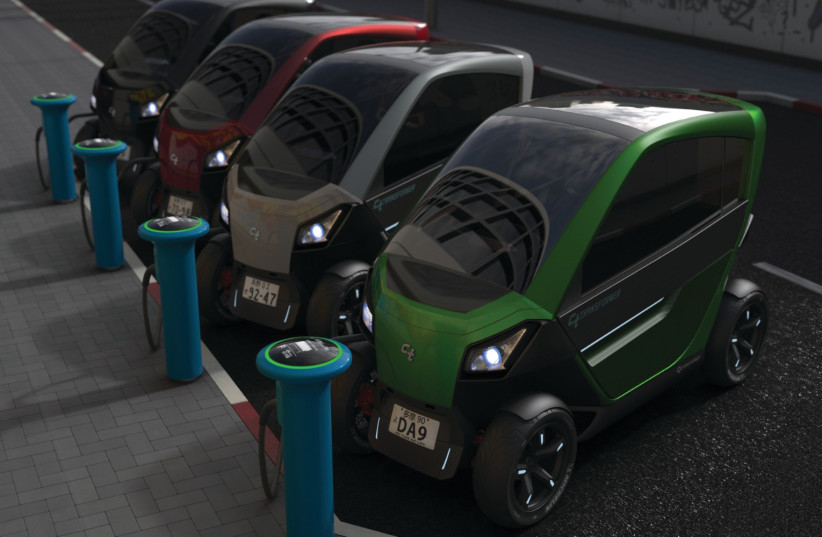California-based luxury electric vehicle maker Lucid Group recently opened its first international manufacturing plant in Jeddah, Saudi Arabia, as the kingdom moves further ahead with its plan to become a global player in the electric vehicle manufacturing industry.
For more stories from The Media Line go to themedialine.org
Partly owned by Saudi Arabia’s Public Investment Fund, the new plant is ultimately expected to produce 155,000 electric vehicles a year.
Faisal Sultan, the Lucid Group’s vice president and Middle East managing director, said the new facility, added to the company’s existing factory in Arizona, “gives us the ability to efficiently fulfill the recently signed agreement with the government of Saudi Arabia to purchase up to 100,000 vehicles over a 10-year period, with an initial commitment to purchase 50,000 vehicles and an option to purchase up to an additional 50,000 vehicles over the same period.”
The new plant proves the kingdom’s “ability to attract investments and compete,” Saudi Industry and Mineral Resources Minister Bandar Alkhorayef said at the factory’s inauguration.
Saudi Arabia’s National Industrial Strategy has been working on establishing a flexible, competitive, and sustainable industrial economy led by the private sector, Alkhorayef said.

The EV industry is one of 12 strategic industrial sectors covered by the NIS to ensure the Saudi commitment to non-oil sectors.
In 2022, in what was clearly an attempt to diversify the country’s economy from oil, Saudi Crown Prince Mohammed bin Salman launched Ceer, the kingdom’s own EV brand. With the assistance of the PIF and in collaboration with Taiwanese contractor Foxconn, Ceer is expected to manufacture 170,000 cars a year.
As well as Lucid and Ceer, Saudi Arabia is aiming to create an EV manufacturing bloc that includes South Korean company Hyundai and various Chinese firms.
“Saudi Arabia is way behind in using the potential that it has as a country in terms of its capital power, all the desert and the space with the sunshine, in terms of [getting] the global private sector to actually come to Saudi as well,” Ahmed Samir, sustainability market leader for the Middle East region at Bureau Veritas, told The Media Line.
“I think Saudi Arabia hasn’t fully maximized the potential from all that it has, so there is still much to be done,” he said.
“But the good news is that it is on track. Saudi Arabia has thought about energy transition in a very good way, in terms of how we can transition and use this alternative energy, which is the future, but also how can we also generate potential economic opportunities by localizing the manufacturing and development of this industry.”
Market research firm Mordor Intelligence said that the Middle Eastern and African EV market was valued at $40.25 million in 2021 and is expected to reach $93.10 million by 2027. In 2021, Saudi Arabia said that it wants 30% of vehicles in Riyadh to be electric by 2030.
The car of the future
International banking group Goldman Sachs said it expects EVs to make up about half of new car sales worldwide by 2035.
“While the EV sector is beset by some major crosscurrents, our strategists expect technology innovation to supersede these forces in the coming years,” a Goldman Sachs research report said.
“Saudi Arabia is on track to becoming a global EV leader, aligning with its ambitious carbon reduction and renewable energy goals,” said Michael Perschke, CEO and investor at German commercial EV company Quantron AG, which delivered the largest fleet of battery EVs in Saudi Arabia. Quantron has partnerships with energy company Petromin and its subsidiary Electromin.
Perschke said their investment underscores their commitment to supporting Saudi Arabia in realizing its ambitious EV objectives and revolutionizing its transportation sector.
“With its unwavering dedication to energy transformation, the kingdom is paving the way for extraordinary opportunities,” Perschke said.
